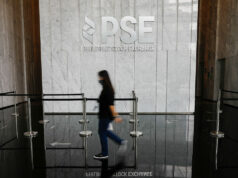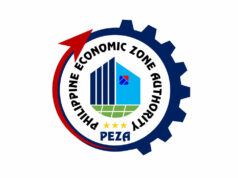Inflation impact of tax reform expected to be muted
By Melissa Luz T. Lopez,
Senior Reporter
THE FIRST TRANCHE of the tax reform plan is unlikely to have a substantial impact on overall inflation, analysts at a global research firm said.
The proposed law now awaits President Rodrigo R. Duterte’s signature, days ahead of its planned implementation by Jan. 1, 2018.
The tax package which Congress ratified on Dec. 13 consists of reduced personal income, estate and donors’ tax rates.
Foregone revenue will be offset by the removal of some exemptions to value-added tax; increased tax rates for fuel, automobiles, tobacco, coal, minerals, documentary stamps, foreign currency deposit units, capital gains for unlisted stock, and stock transactions; and new taxes for sugar-sweetened drinks and cosmetic enhancements.
These measures are expected to raise two-thirds of the P130 billion originally projected by the Department of Finance, while the balance will be sourced from another set of reforms on tax administration to be approved by Congress next year.
Capital Economics said the higher excise taxes could stoke inflation by 2018, although not at a level that would alarm the central bank.
“The increases in indirect taxes are likely to push up inflation. That said, the overall impact is likely to be relatively small given that the changes are set to be phased in over several years,” analysts at Capital Economics said in a report published yesterday.
Split into several tranches, the entire tax reform program is designed to shift the burden to those who can afford to pay more, while raising additional revenue that will help finance the government’s ambitious P8.44-trillion infrastructure development effort until 2022.
The Bangko Sentral ng Pilipinas (BSP) expects inflation to average 3.4% in 2018, slightly higher than the 3.2% expected this year but still within the 2-4% target band.
The central bank has acknowledged that the pace of price increases is likely to pick up next year, although BSP Deputy Governor Diwa C. Guinigundo said higher oil prices — which have a significant weighting in the consumer price basket — will “not be enough to upset inflation,” referring to an impact which would bring the headline number beyond 4%.
Higher duties to be imposed under the tax reform package will likewise have a “transitory” impact on consumer prices, the BSP official added.
Capital Economics said the enactment of the first tax reform package is a net plus for the Philippine economy, as it would support increased government spending over the coming years.
“The extra tax revenue, which are the equivalent of around 1% of GDP (gross domestic product), will be used to fund the administration’s ambitious infrastructure spending plans,” the report read. “These projects should increase capacity, reduce bottlenecks in the economy and actually ease inflationary pressures over the medium term.”
The building program seeks to substantially raise public spending on infrastructure, in the process improving connectivity and the ease of doing business in the Philippines while also fueling rapid economic growth.
In turn, increased infrastructure spending is expected to propel annual GDP growth to between seven and 8% from 2018 to 2022, cementing the Philippines’ position as one of the fastest-growing economies in Asia.



